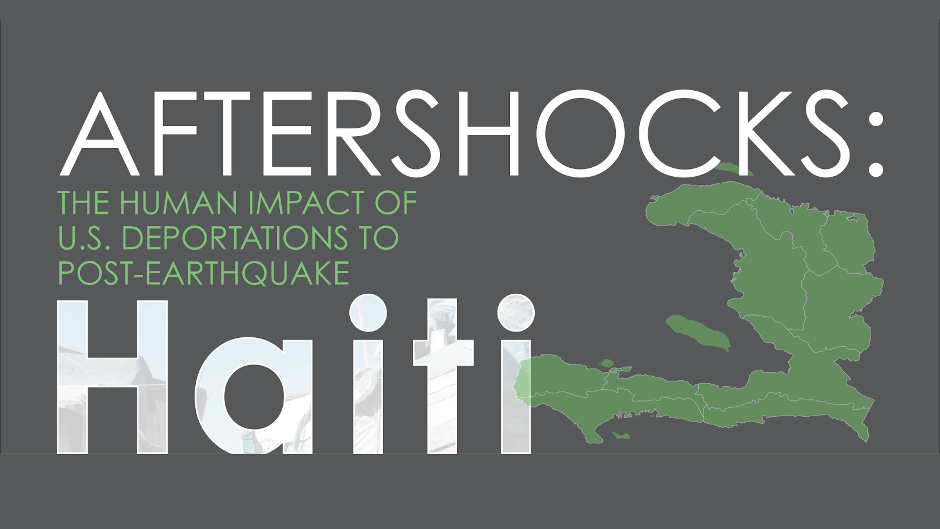Miami Law's Immigration and Human Rights Clinics, in collaboration with the University of Chicago Law School International Human Rights Clinic, have recently published a report that documents the stories of the men and women who have been deported from the United States to post-earthquake Haiti. The report, Aftershocks: The Human Impact of U.S. Deportations to Post-Earthquake Haiti, was distributed on February 16, 2015.
The law school clinics collaborated with Alternative Chance/Chans Alternativ, Americans for Immigrant Justice, Haitian Women of Miami (FANM), and the Institute for Justice & Democracy in Haiti to conduct extensive fact-finding about the treatment of men and women who were deported on account of past criminal convictions, including interviews with more than 100 deportees.
“This report would not have been possible without deportees willing to share their stories of the almost insurmountable obstacles they face in post-earthquake Haiti,” said Geoffrey Louden, a third-year law student at Miami Law, who traveled to Haiti in October and worked on the report. “We urge policymakers to listen.”
Based upon extensive fieldwork and research, this report details the experiences of deportees - who sometimes refer to themselves as “strangers in a strange land” – and their U.S.-based family members. The report illustrates how the United States violates the fundamental human rights of Haitian nationals and their family members when it deports them to post-earthquake Haiti without due consideration of the deportees’ individual circumstances and the ongoing humanitarian crisis in Haiti.
Due to the tragic consequences of the 2010 earthquake, the U.S. granted Temporary Protected Status (TPS) to eligible Haitians, allowing them to stay in the U.S. temporarily. Excluded from protection under TPS are individuals convicted of two misdemeanors or one felony. As a result, over the past five years, the U.S. has forcibly returned approximately 1,500 men and women, including parents of U.S. citizen children, people with severe medical and mental health conditions, and those with only minor criminal records.
Click here to read the Haiti Report.

